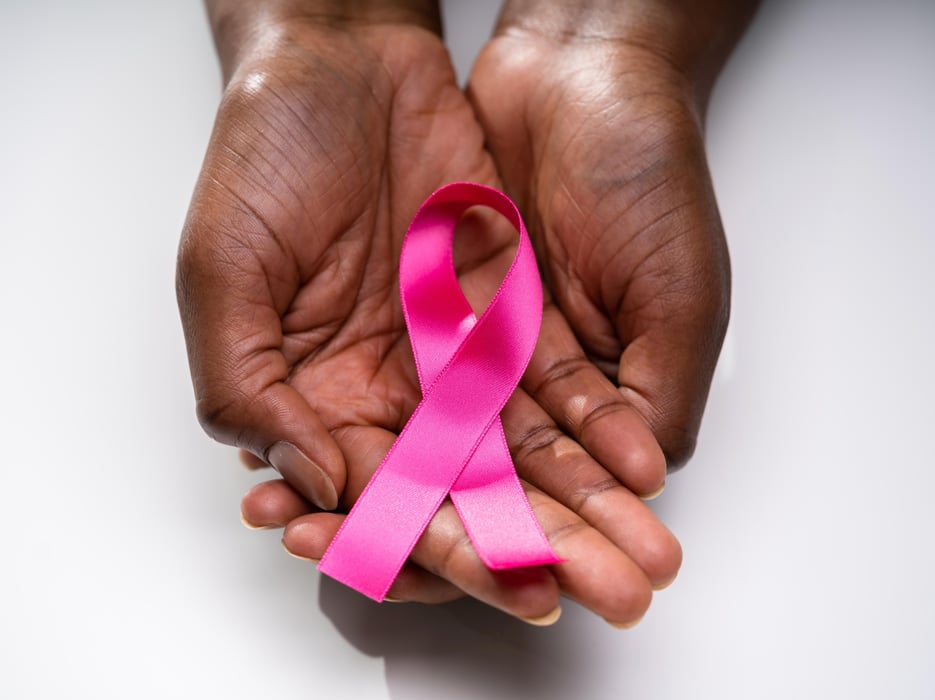Geographical, Racial/Ethnic Differences Seen for Triple-Negative Breast Cancer

WEDNESDAY, March 8, 2023 (HealthDay News) -- There are substantial state variations in racial and ethnic disparities in triple-negative breast cancer (TNBC) incidence in the United States, according to a study published online March 2 in JAMA Oncology.
Hyuna Sung, Ph.D., from the American Cancer Society in Atlanta, and colleagues quantified between and within racial and ethnic disparities in TNBC incidence rates among U.S. women using data from the U.S. Cancer Statistics Public Use Research Database. The analysis included 133,579 women with TNBC diagnosed from 2015 through 2019.
The researchers found that the TNBC incidence rate was highest among Black women (25.2 per 100,000 women), followed by White (12.9 per 100,000), American Indian or Alaska Native (11.2 per 100,000), Hispanic (11.1 per 100,000), and Asian or Pacific Islander (9.0 per 100,000), with substantial variance observed in racial and ethnic group-specific and state-specific rates. Within each racial and ethnic population, state variations were smaller but still substantial. Incident rate ratios (IRRs) were statistically significantly higher in 38 of 38 states among Black women versus White women. Black women in Delaware, Missouri, Louisiana, and Mississippi had the highest rates among all states and racial and ethnic populations. Compared with the national rate, IRRs varied from 0.72 in Utah to 1.18 in Iowa among White women.
"The findings suggest a role of social determinants of health in shaping the geographically patterned risk of TNBC and a need for more research to identify factors contributing to the state variations in disparity to develop effective preventive measures," the authors write.
Abstract/Full Text (subscription or payment may be required)
Related Posts
Irregular, Long Menstrual Cycles Up Risk for Cardiovascular Disease
WEDNESDAY, Oct. 26, 2022 (HealthDay News) -- Irregular and long menstrual cycles...
Western Diet May Have Detrimental Effect on Prostate Cancer Risk
WEDNESDAY, April 19, 2023 (HealthDay News) -- Adherence to a Western diet may...
Adverse Childhood Experiences Led to Poorer Mental Health During Pandemic
FRIDAY, Oct. 14, 2022 (HealthDay News) -- Experience of adverse childhood...
Ob/Gyn Tests Stay Virtual Due to Fears Around COVID, Abortion Ruling
TUESDAY, July 19, 2022 (HealthDay News) -- In light of the Supreme Court's...
